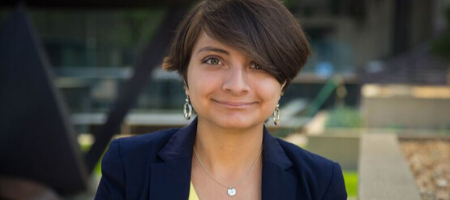By Ithaka S+R

1. What are the goals for ECMC Foundation’s three-year Basic Needs Initiative?
The overarching goal of the BNI is that it will encourage the widespread adoption and advancement of best practices for other basic needs initiatives – local, statewide, or even national – in order to increase the persistence and graduation rates for colleges’ most vulnerable students. We’re excited that ECMC Foundation’s BNI cohort has the opportunity to collectively reach upwards of 200,000 students across the country.
ECMC Foundation will engage a third-party evaluator-facilitator to help the cohort members identify shared metrics, measure impact of the initiative and bring the cohort together in person over the course of the initiative. ECMC Foundation will work with the facilitator and the grantee cohort to make our lessons learned publicly accessible. We’re also looking forward to sharing lessons learned across education and funder communities in order to advance initiatives and raise awareness in supporting students’ basic needs. We know there’s already significant interest in this area and we’re excited to contribute to the momentum of this movement.
2. Can you tell us how the ECMC Foundation identified basic needs as the focal point for this initiative and why basic needs security is an essential element for student success?
In four studies published between 2015 and 2019, ECMC Foundation’s grantee the Hope Center for College, Community, and Justice uncovered that nine percent of students enrolled at four-year campuses experience homelessness, with higher rates at community colleges. Additionally, 36 percent of students enrolled at four-year campuses and 42 percent of community college students experience food insecurity. Not only are gaps in basic needs detrimental to whether or not a student persists toward their degree but they are also most prevalent among the very communities and identities that ECMC Foundation prioritizes in our work: students of color, first-generation college students and students from low-income backgrounds.
On a personal note: the challenges faced by students experiencing homelessness is one that has been on my radar for some time as my family and I were homeless while I was applying to college. I’m proud to support the BNI’s efforts to build pathways of socioeconomic mobility through higher education and its efforts to destigmatize students reaching out for supports of their basic needs.
ECMC Foundation also recognizes that students served through the Basic Needs Initiative cohort will require support in a diverse range of areas, including childcare, mental health wellness services, housing and nutrition. Addressing students’ basic needs is essential if colleges and universities—especially those enrolling high numbers of students from underserved backgrounds—and their community partners are committed to improving degree completion and safeguarding higher education as a public good.
3. How do you envision Ithaka S+R’s research supporting a dialogue both within and beyond the other programs funded through the BNI?
We look forward to Ithaka S+R’s contributions to the discussion as a researcher and thought partner among members of the BNI learning cohort. We’re excited to see what initial information Ithaka S+R uncovers through their national survey and interviews with institutional leadership on openness to alternative metrics for student success and awareness of the challenges that students face around basic needs. This will bring a wider perspective to the state-level work many of our other partners are doing. Another highly valuable contribution is Ithaka S+R’s past work surveying students on how they define success through the lens of basic needs. We appreciate these efforts to ensure a student-informed approach to potential holistic measures that they may recommend.
As the BNI will include at least six other organizations, Ithaka S+R’s efforts to establish a common understanding of vocabulary related to what defines student success will be greatly appreciated! This cohort includes statewide community college systems (Michigan and Arkansas) in addition to well-recognized policy advocates and service providers such as United Way of King County. If this group can begin to fortify shared language for understanding basic needs across state lines and systems, there is opportunity to influence how others are engaging in the conversation and what steps they’re taking to impact students. Additionally, shared language means shared understanding as to which interventions are working and how students are talking about their own experiences. As we raise the volume of the conversation around basic needs, we can break down stigmas that surround areas of mental health, housing and hunger.
